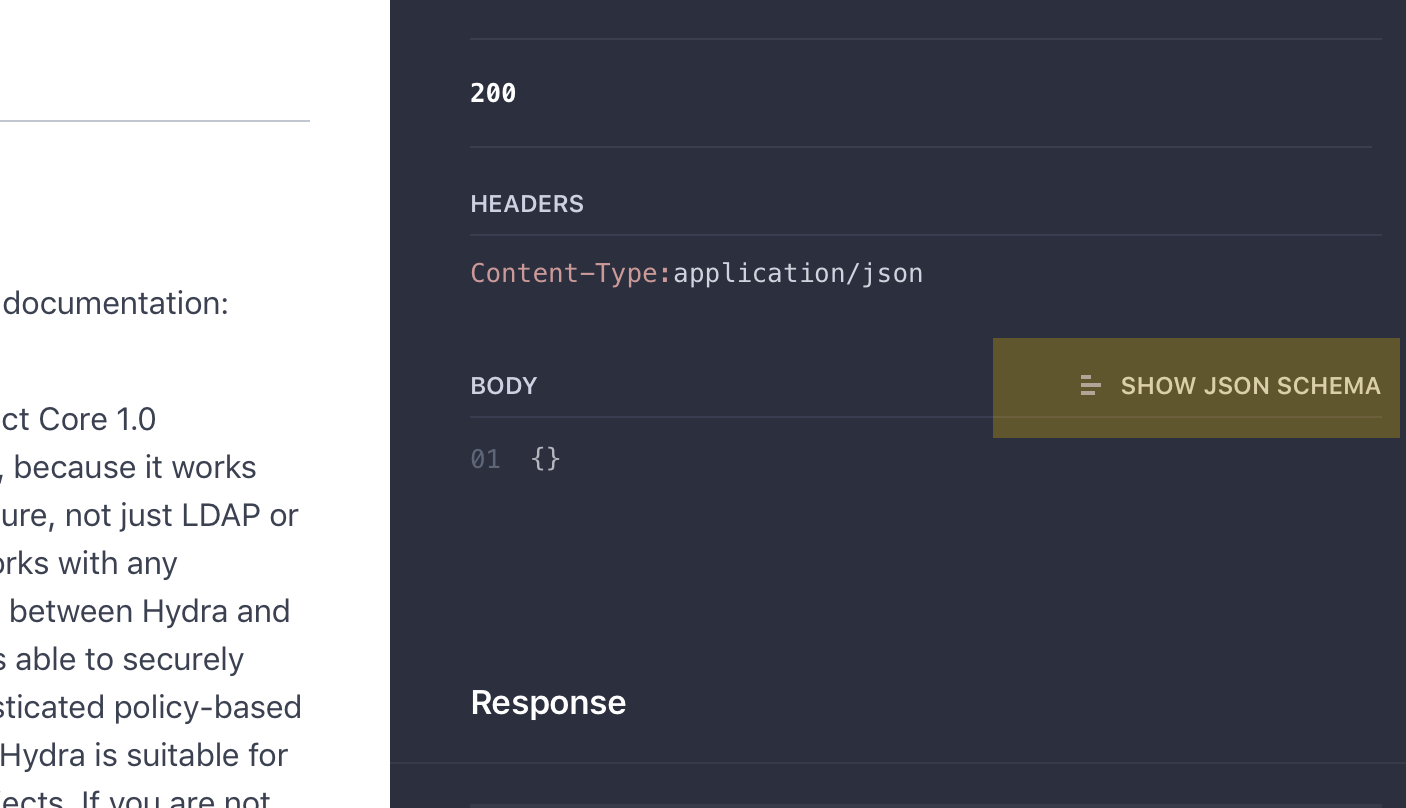forked from ory/hydra
-
Notifications
You must be signed in to change notification settings - Fork 0
/
consent_request.go
33 lines (25 loc) · 2.43 KB
/
consent_request.go
1
2
3
4
5
6
7
8
9
10
11
12
13
14
15
16
17
18
19
20
21
22
23
24
25
26
27
28
29
30
31
32
33
/*
* Hydra OAuth2 & OpenID Connect Server
*
* Please refer to the user guide for in-depth documentation: https://ory.gitbooks.io/hydra/content/ Hydra offers OAuth 2.0 and OpenID Connect Core 1.0 capabilities as a service. Hydra is different, because it works with any existing authentication infrastructure, not just LDAP or SAML. By implementing a consent app (works with any programming language) you build a bridge between Hydra and your authentication infrastructure. Hydra is able to securely manage JSON Web Keys, and has a sophisticated policy-based access control you can use if you want to. Hydra is suitable for green- (new) and brownfield (existing) projects. If you are not familiar with OAuth 2.0 and are working on a greenfield project, we recommend evaluating if OAuth 2.0 really serves your purpose. Knowledge of OAuth 2.0 is imperative in understanding what Hydra does and how it works. The official repository is located at https://github.com/ory/hydra ### Important REST API Documentation Notes The swagger generator used to create this documentation does currently not support example responses. To see request and response payloads click on **\"Show JSON schema\"**:  The API documentation always refers to the latest tagged version of ORY Hydra. For previous API documentations, please refer to https://github.com/ory/hydra/blob/<tag-id>/docs/api.swagger.yaml - for example: 0.9.13: https://github.com/ory/hydra/blob/v0.9.13/docs/api.swagger.yaml 0.8.1: https://github.com/ory/hydra/blob/v0.8.1/docs/api.swagger.yaml
*
* OpenAPI spec version: Latest
* Contact: hi@ory.am
* Generated by: https://github.com/swagger-api/swagger-codegen.git
*/
package swagger
import (
"time"
)
type ConsentRequest struct {
// ClientID is the client id that initiated the OAuth2 request.
ClientId string `json:"clientId,omitempty"`
// ExpiresAt is the time where the access request will expire.
ExpiresAt time.Time `json:"expiresAt,omitempty"`
// ID is the id of this consent request.
Id string `json:"id,omitempty"`
// Redirect URL is the URL where the user agent should be redirected to after the consent has been accepted or rejected.
RedirectUrl string `json:"redirectUrl,omitempty"`
// RequestedScopes represents a list of scopes that have been requested by the OAuth2 request initiator.
RequestedScopes []string `json:"requestedScopes,omitempty"`
}